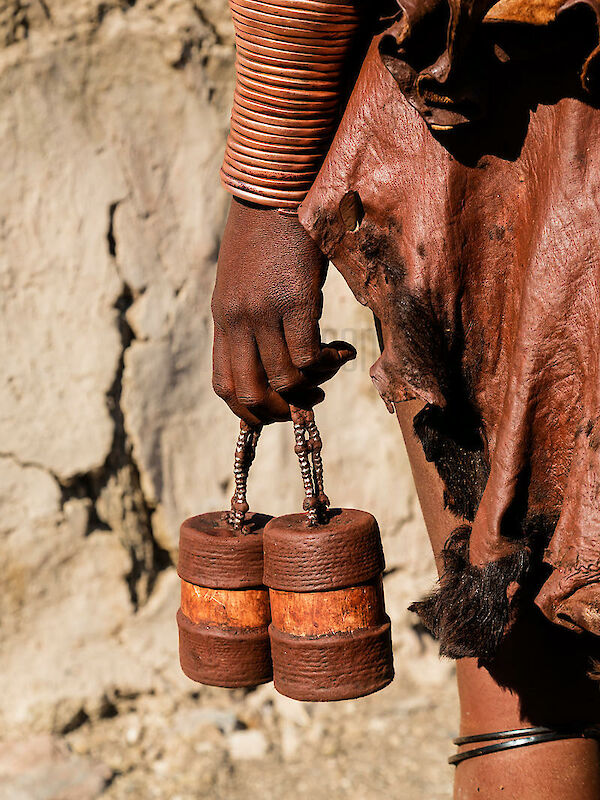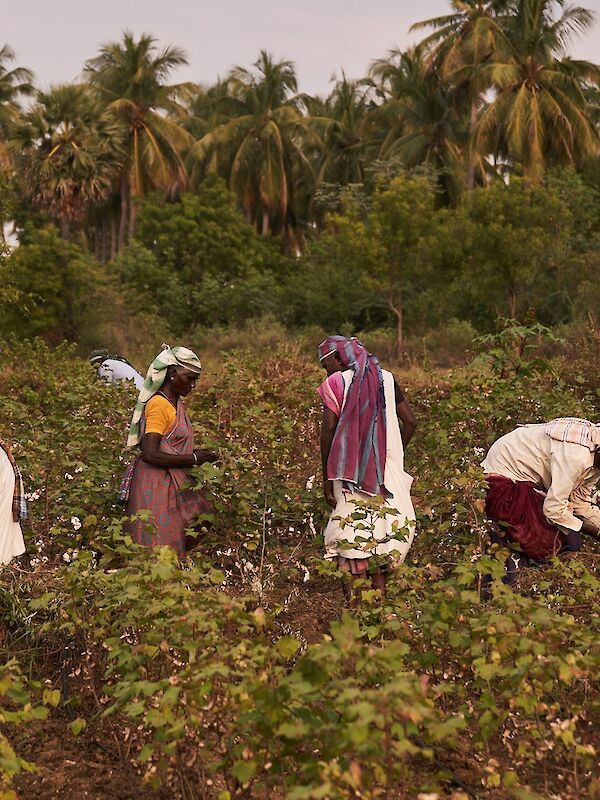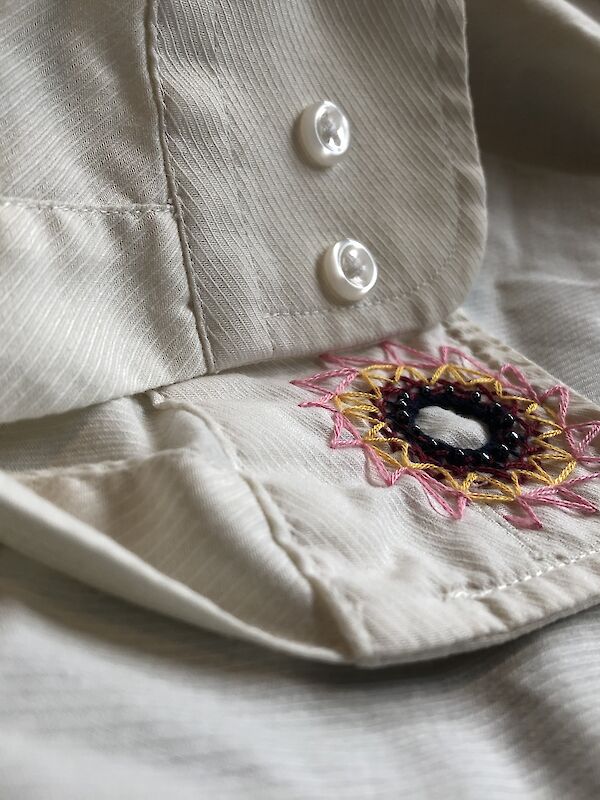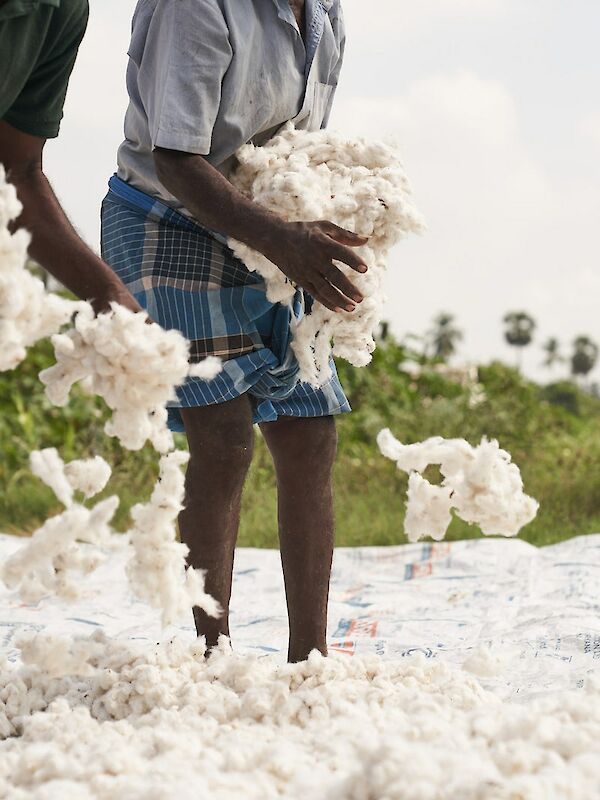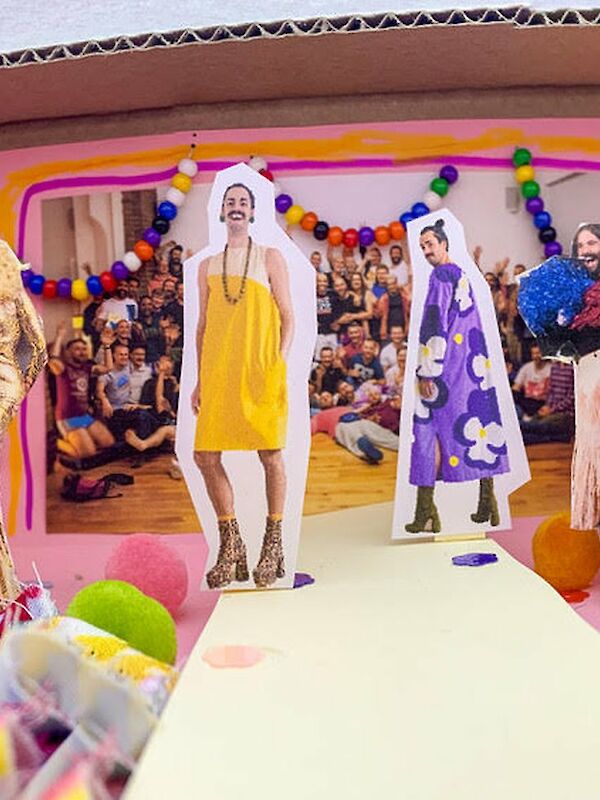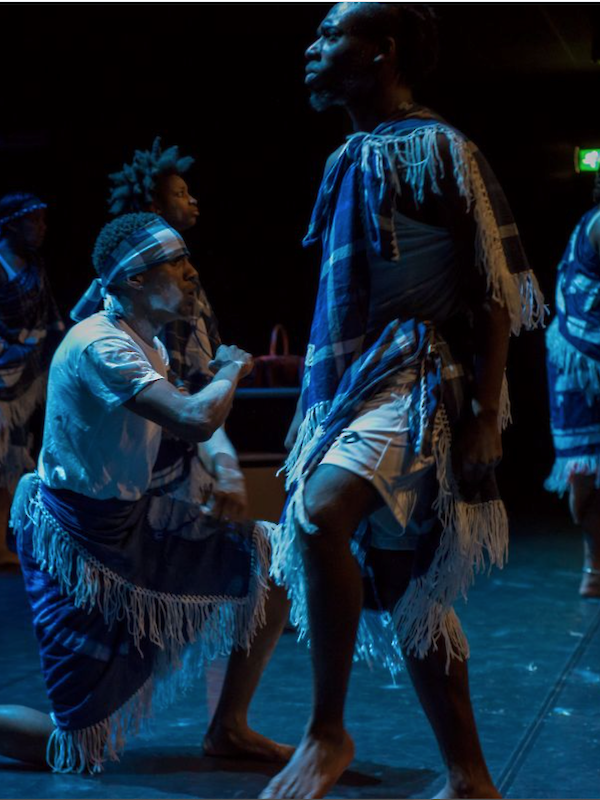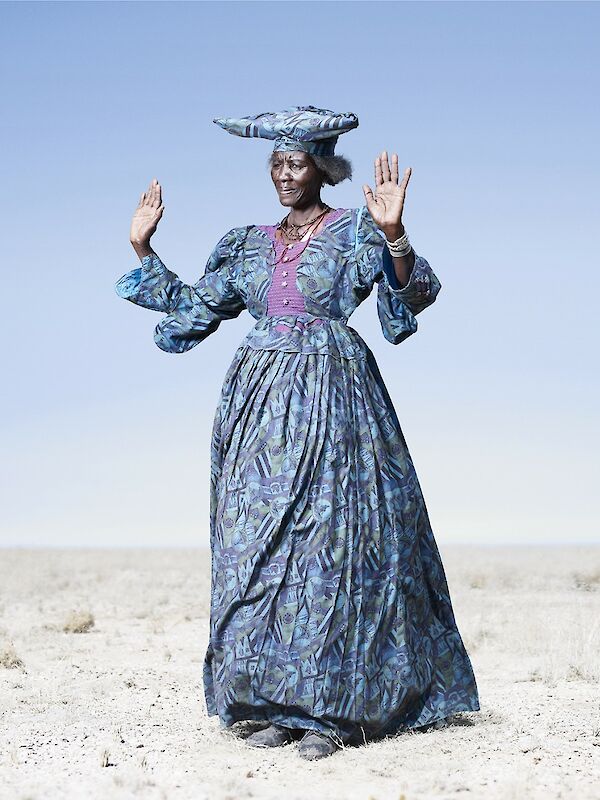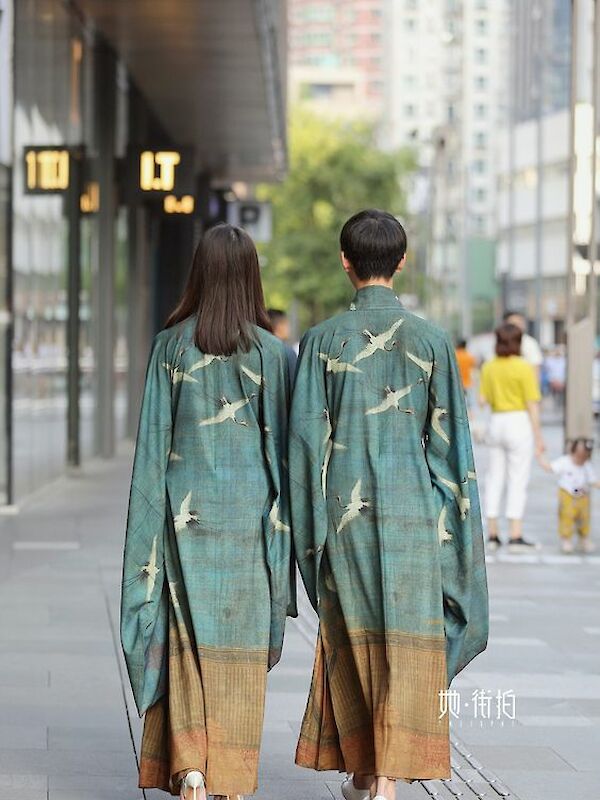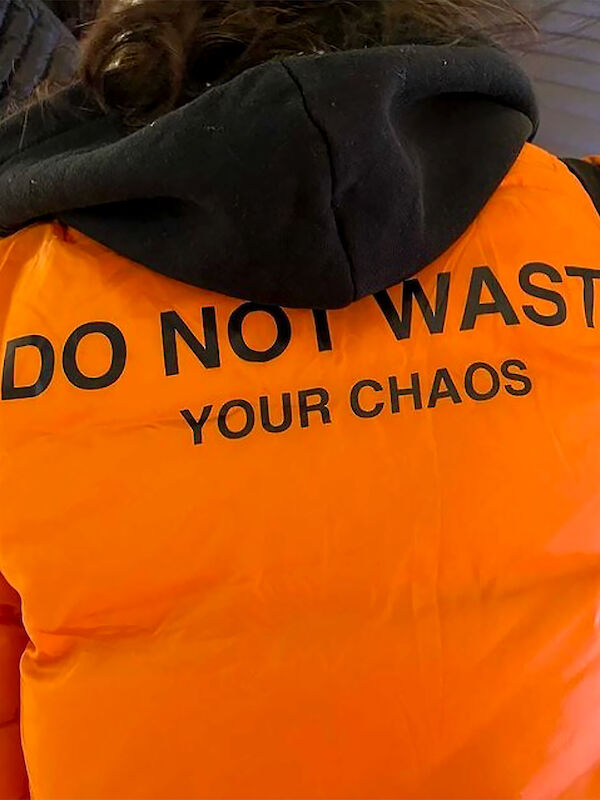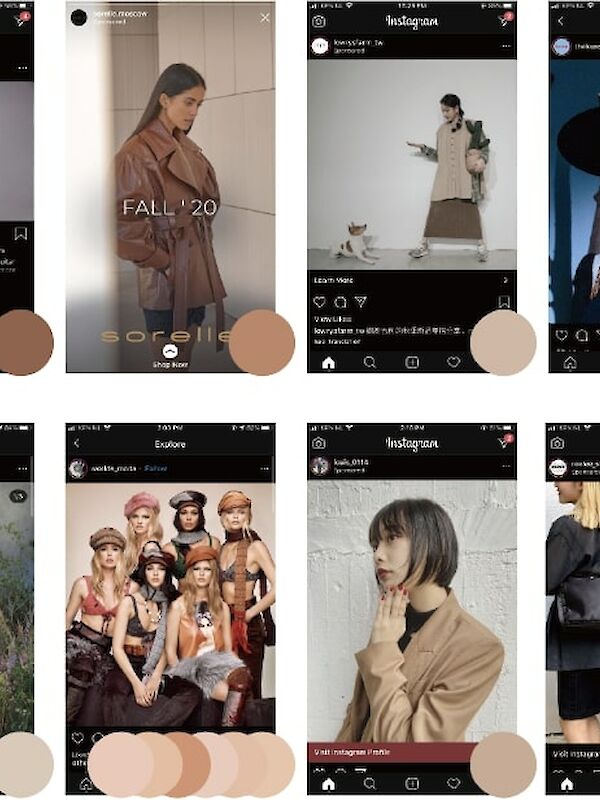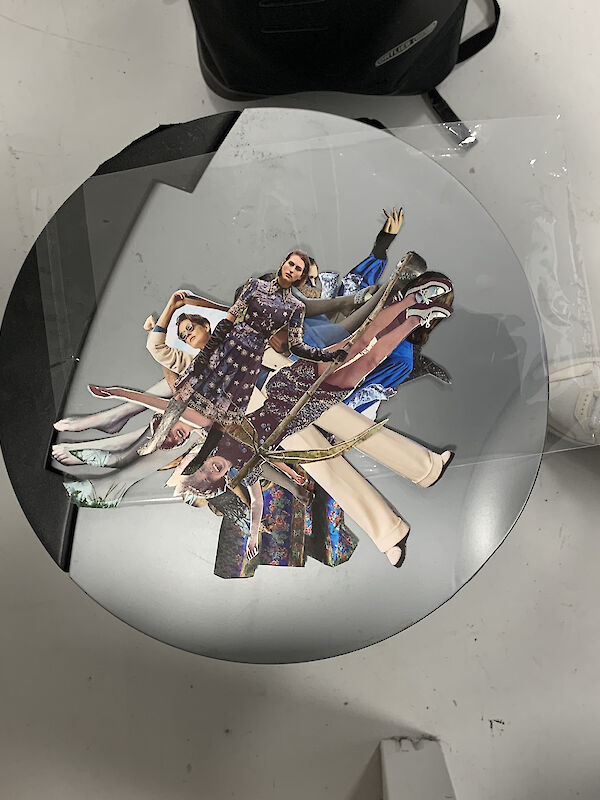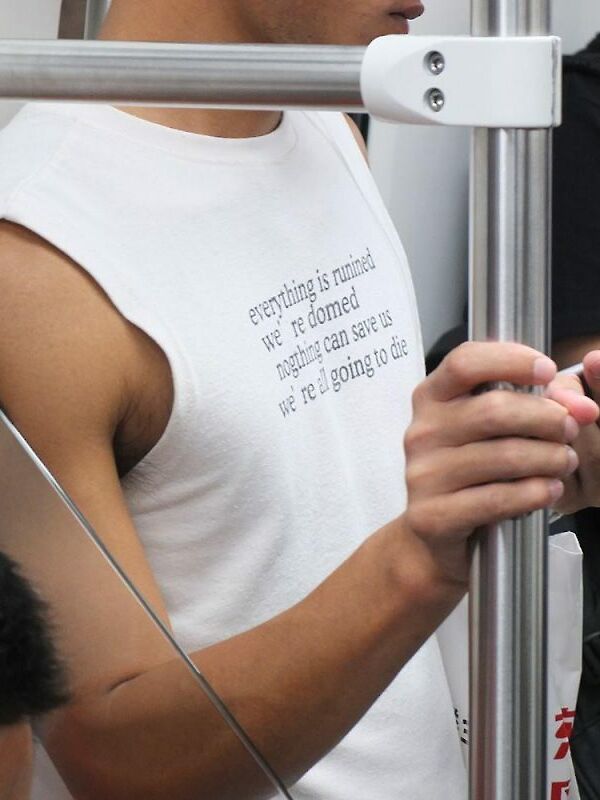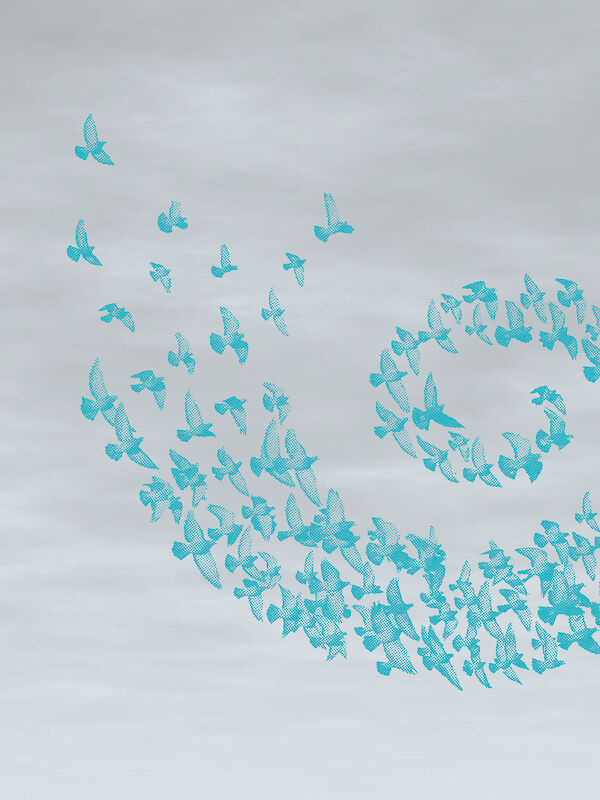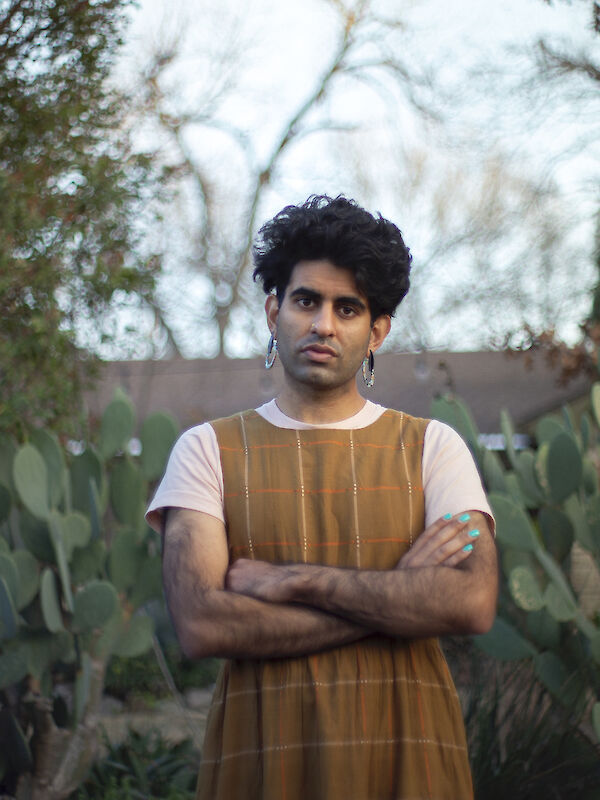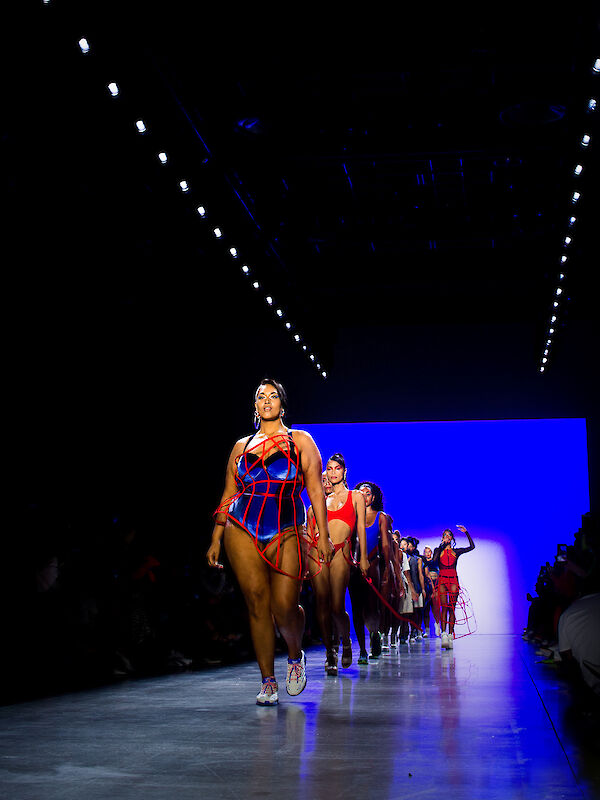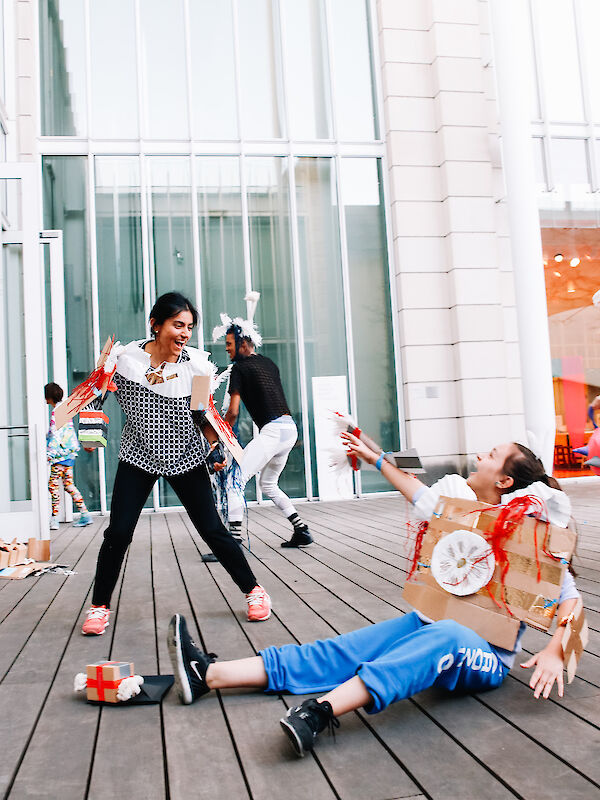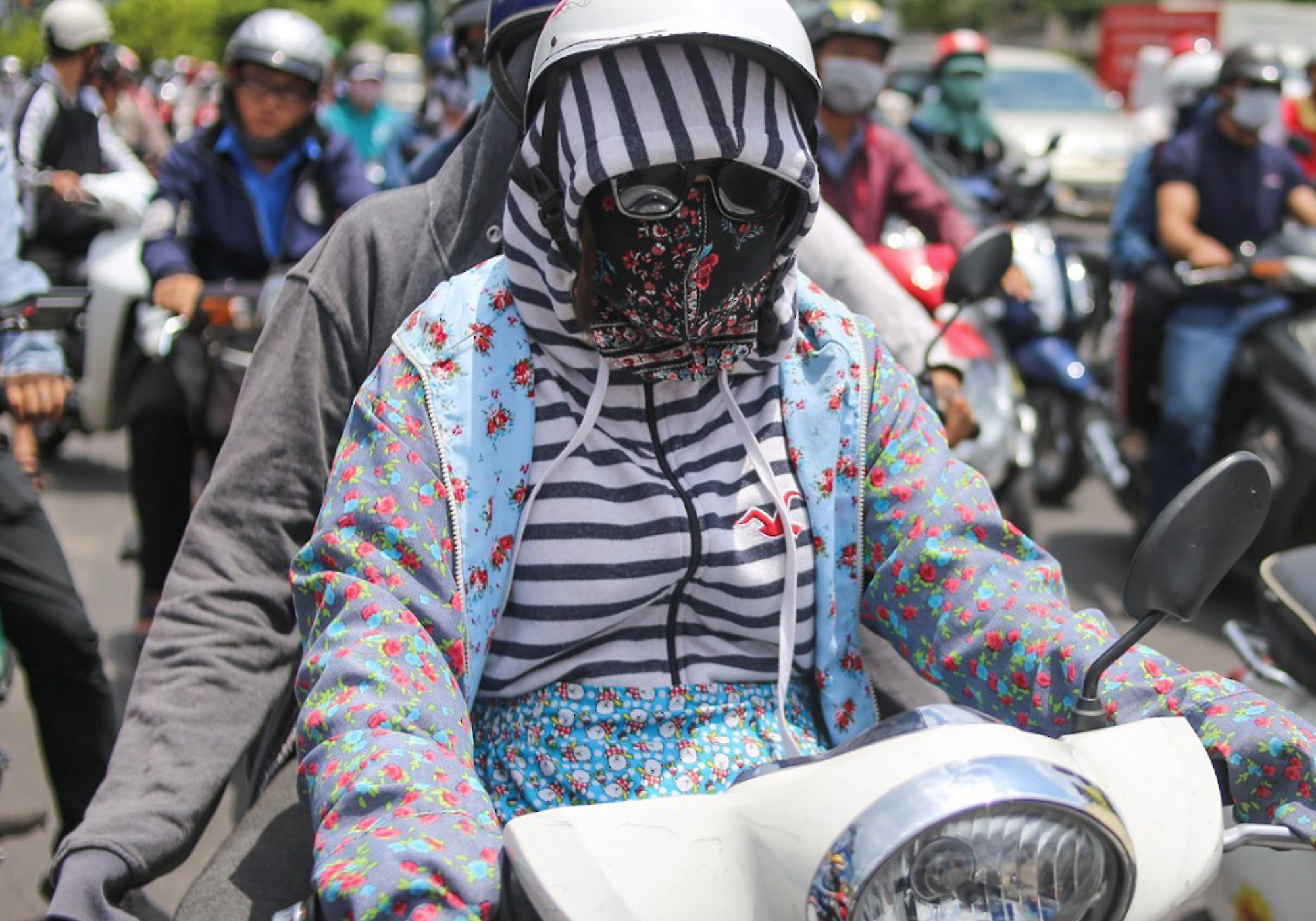
After the publication of the article ‘Regenerative Fashion: There can be no Other’ and the panel discussion on the 28th of October, we invited the Master students of the Critical Inquiry Lab at the Design Academy Eindhoven to reflect and respond on the topic, in an online conversation with State of Fashion’s Head of Program. Following this conversation, six students chose an object, project or initiative that illustrates their view on decolonizing fashion. In this online fringe exhibition, we bring their reflections together.
What do the messages that the fashion industry serves tell us about the state of decolonization? Emma Sfez and Ferdinand Brettilot both zoom in on cultural appropriation and representation. Should we be optimistic and hopeful, or are we (still) being blind-sided by the industry? Maxime Benvenuto also questions the true intent of decolonial work in the western fashion industry. Are our intentions sincere, or are we just following ‘another trend’?
Transparency and equality in the industry are other topics that are raised. Jonė Miškinytė shows how creating more visibility for the making process will generate awareness. Camille Guirbaud and Maxime Benvenuto put a focus on the workers and the artisans, and illustrate how cultural projects reaching beyond the cultural space can create active change in the industry.
Oshin Siao Bhatt presents a project that doesn’t only give a platform to the making process and its makers, but actively takes their indigenous lifestyles and strategies as a leading example for how the industrial fashion system could change for the better. With this project, she is already starting the conversation of our next Intervention, themed Origins. Do we act against progress if we follow ancient strategies, or can we actually thrive by moving forward from existing knowledge?
Selection of works:
Emma Sfez
Ferdinand Brettilot
Maxime Benvenuto
Jonė Miškinytė
Camille Guirbaud
Oshin Siao Bhatt
Special thanks to:
Saskia van Stein
Gijs de Boer
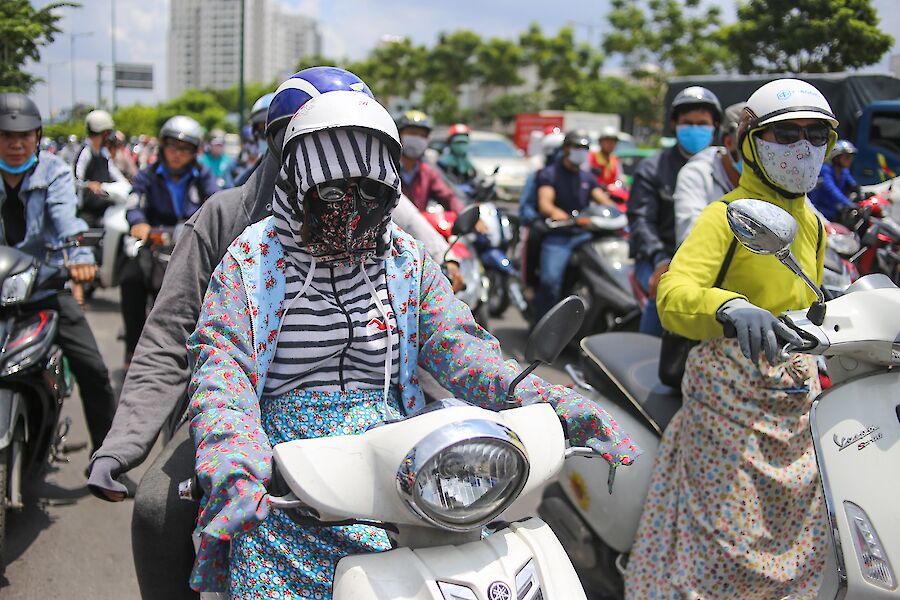
the nice image at all price
In Vietnam, the Street Ninja style is the name that has been given to a large part of motorcycle drivers. To avoid exposure to UV rays and solar diseases, drivers cover their skin with any sort of clothes.
In June 2019, Tra My Nguyen, a Vietnamese student at the Berlin University of the Arts deconstructed this style for her master project. Few months later, Balenciaga, who had seen her work and had asked for images, posted an image on Instagram in which her idea was clearly copied. The only notable difference is the use of clothes from the brand.
In my opinion, this example clearly illustrates that fashion is colonized. Balenciaga uses an image that is visually appealing in order to promote their brand. They seem to have not wondered about the meaning behind this image and, even worse, they are exploiting someone else's work. Indeed, Tra My Nguyen has never been involved in the project. When we speak about decolonizing fashion, we speak about taking into account the history behind a textile, the origin, the symbolic and the fight against exploitation in all its forms. This is a perfect counter-example.
About Fernand Bretillot
Fernand Bretillot has a practice in the exhibition design field. He is currently part of the Critical Inquiry Lab at Design Academy Eindhoven, where he enriches his work with curatorial research.
Images: Street Ninja style, photo by Quynh Tran
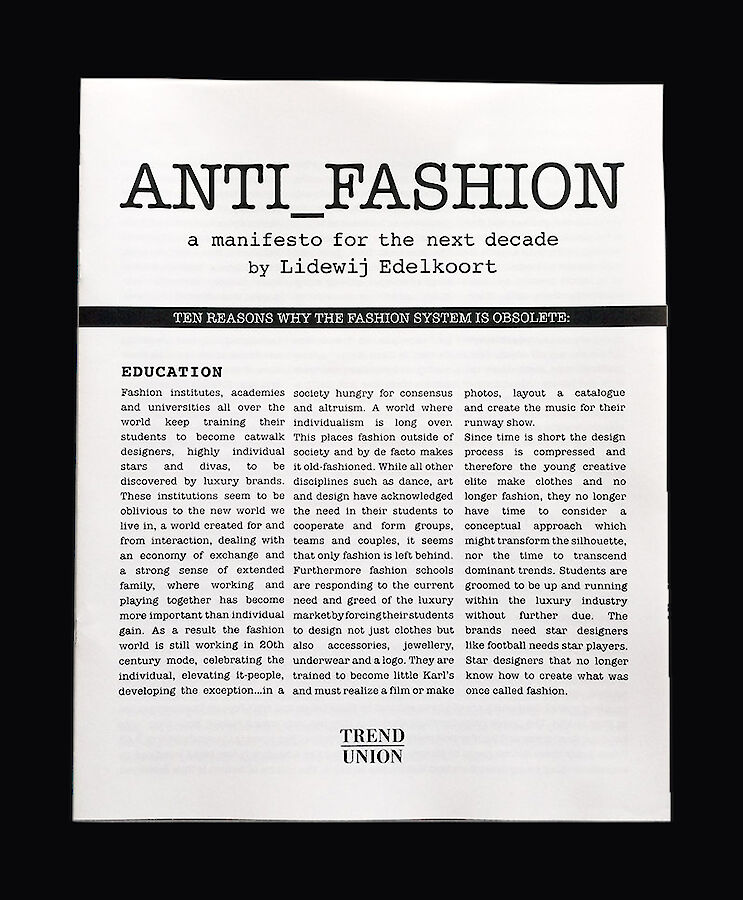
against a colonisation of decolonisation
In 2014, Lidewij Edelkoort published her “Anti-Fashion Manifesto”. Along with it came a wave of presentations and talks where she would elaborate, rightly so, about the many changes the textile and garment industries have to go through in order to become relevant again. From labour conditions, to system thinking, her manifesto tackles many points that show how the fashion industry has become the most outdated branch of the design field. Yet, I remember specifically Edelkoort mentioning on the stage of VOICES (Business of Fashion) that like many other sectors, fashion should work (among other processes) in “hacking” ways, re-appropriating, transforming, etc. Through this we can feel a call for a change of culture. A call towards co-sharing, democratization, opening up resources. And yet, the very manifesto in which these visionary words are printed, is only accessible through a payment of €25. In the same talk, Edelkoort calls for the full crediting of teams, like in cinema, and yet again, in her manifesto, only her name appears; no graphic designer, no type foundry, no printer, nor publisher, no editor, nor reviewers.
The example of Edelkoort is only an illustration. In many ways, she has been living up to her words through supporting young, alternative, innovative, and socially engaged ventures, which deserves praise. We all have blind spots, and one may say that old habits die hard. But, one may also wonder about the motivations that animate the acts of those claiming to decolonize the fashion industry. Clearly, decolonizing has become a market in the cultural field at large, from independent studios creating experiments, to big institutions revisiting their mechanisms. Everyone has become aware of the importance to decolonize habits and behaviors that were inherited from our common past. Therefore, in our commendable desire to decolonize whichever field, we should be cautious to not colonize these decolonizations with the same old tricks we are trying to deconstruct, and remain critical of our endeavors.
There are still many cultures for us to dismantle.
About Maxime Benvenuto
Maxime Benvenuto is a design researcher based in Rotterdam. He develops projects involving journalistic, political, and societal issues, in combination with theoretical and critical reflections on design practices. He is co-founder of We Are, a foundation that uses design methodologies through cross-field collaborations for societal impact.
Image extracted from anti-fashion-project.com
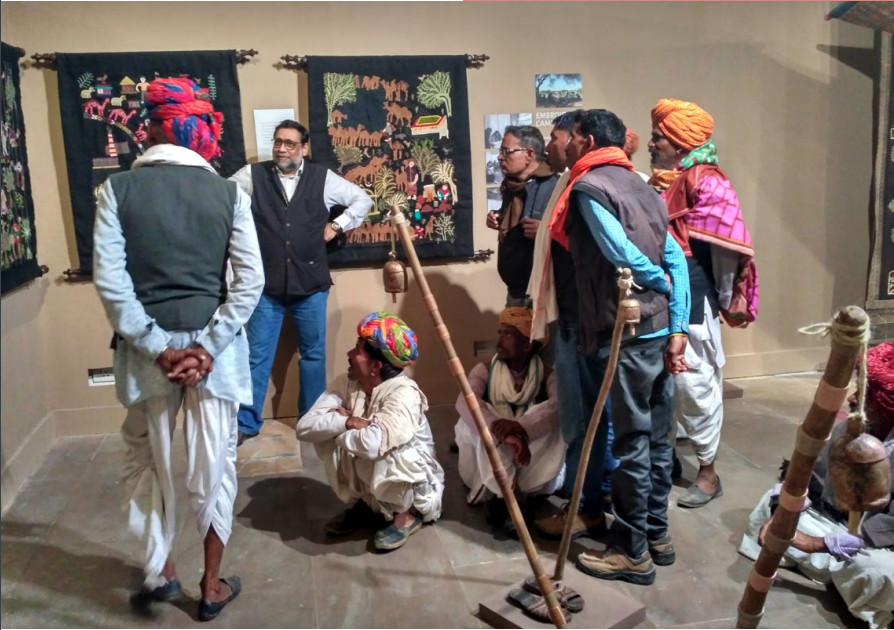
living lightly
Living Lightly, first organized in New Delhi India in 2016 by Sahjeevan and Foundation for Ecological Security, is a traveling exhibition that captures the lives of Indian pastoralists. Curated by Sushma Iyengar, the project has brought together pastoralists, academics, activists and policymakers from different parts of the Indian subcontinent, to center the conversation around the science, economy, knowledge systems and cultures of pastoralism. The project has brought to the fore the many forms of craft that have emerged through the socio-economic ties between artisans and pastoral communities in different regions. While many communities across the country continue to subsist on pastoralism, many of these relationships have not survived the structural and economic changes of the last few decades. Simultaneously, many of the crafts, such as Ajrakh - a form of block printing originating from the Sindh region in South Asia, traditionally created using indigo dye to make cloth laden with ritual significance for the Maldhari herding communities - have found commercial prominence through both high-end and budget brands, even as the ties between the two communities no longer exist. In cases such as that of the weaving community of Vankars in Kutch - who once had a symbiotic relationship with the Rabaris, the breeders of indigenous wooly sheep - the artisans have switched to imported, low cost, machine-spun wool from Australia, leaving the Rabaris with no market for their indigenous wool.
By bringing these issues to the fore, the Living Lightly project sought to start the conversation around the future of pastoral living, whilst giving the stage to artisans and pastoralists from different regions. Moreover, in its collaboration with representatives of these communities, it ensured a dialogue around the needs, aspirations, and desires of the artisans and pastoralists involved, on their own terms. While acknowledging the need for economic and financial support, which may be facilitated by retaining relevance in the contemporary market, the project also celebrated the social, cultural, and historical contexts of these crafts. By highlighting the ecosystems within which the crafts were created, as well as by supporting the renewal of ties in accordance with the wishes of the communities themselves, the project proposed a sustainable and mutually beneficial system of production. It also brought to light the often ignored ritualistic life cycle of clothing, textiles, and patterns, that may be lost in their commercialization. Living Lightly recognizes these oral and visual (woven) narratives of crafting communities, as well as the complex financial reasons to commercially produce objects that may have once been held sacred.
Through an exploration of the everyday lived experiences of communities that produce crafts that become fashion, at the helm of the designers who drive the market, this project started a conversation around one of the ways in which fashion may be decolonized.
About Oshin Siao Bhatt
Oshin Siao Bhatt is a design researcher from New Delhi, India, with a Master Degree in Sociology and Social Anthropology. She is currently pursuing a Master at The Critical Inquiry Lab of The Design Academy Eindhoven. She is interested in exploring the intersections between design and the social sciences, and hopes to further the conversation around ethics in research and design.
Image source: Living Lightly - Exhibition Report, Delhi 2016
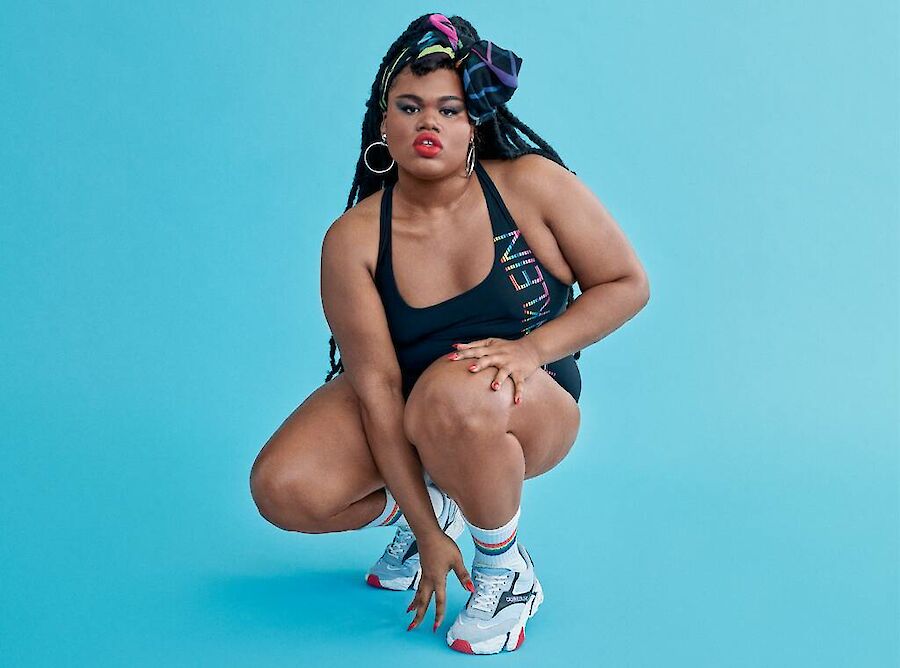
jari jones
An important part of doing decolonial work in fashion is critically reflecting on the images that fashion presents to all those outside of the industry. One important aspect of image-making is the use of models, who are hired and shown. For a long time, most of these models were white, tall and very skinny. As this is still the norm, it is amazing to see black trans model Jari Jones in a campaign of Calvin Klein
Jari Jones is an American actress, filmmaker, model, and LGBTQ rights activist. Jones was a cast member, script consultant, acting coach, and producer of Port Authority. She was the first Black trans woman producer of a film competing at the Cannes Film Festival. In 2020, Jones was one of the nine faces in Calvin Klein's 2020 Pride campaign.
Activists such as myself would think that booking someone like Jones for a campaign is pure opportunism of big brands such as Calvin Klein, as people of power in fashion are still mainly white, cis, straight, man. Although seeing a model like Jones becoming mainstream is just the beginning, we do have to keep that in mind that it's a victory to see new representation emerging.
About Emma Sfez
Emma Sfez is a designer with a specific interest in contemporary drawing and activist curating. She is currently a student in the Critical Inquiry Lab program at the Design Academy Eindhoven.
Image: Jari Jones for Calvin Klein, by Ryan McGinley
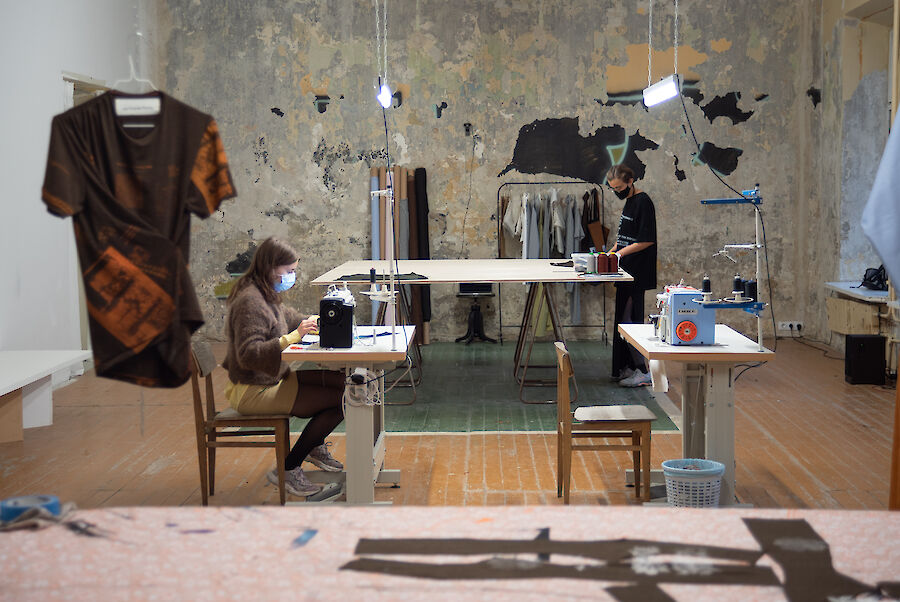
and wardrobe planning
We lost it.
The bond between the user and the maker is the most fragile. Through overcrowded shelves we are not able to track the background story, the real process and the unequal experiences.
The recent durational performance and exhibition 'And Wardrobe Planning' by Karolina Janulevičiūtė and Kasia Gorniak, presented at “Atletika” gallery in Vilnius, Lithuania, raised the question: Could it be that the maker of the garment is dislocated so far off, behind the walls of the factory, that the dialogue becomes disconnected with no traces to be found? The two artists opened the space to the public to enter the creation process. A temporary working room was set up in the gallery to make the work transparent. Through this mutual learning process, the artists reflect on the possibility of rebuilding an intimate relationship with garments, rethink the outdated methods of consuming fashion, and work towards an activism to restore dignity and quality in the fashion industry.
Karolina Janulevičiūtė and Kasia Gorniak were also part of the 2018 Fashion Colloquium 'Searching for the New Luxury'.
About Jonė Miškinytė
Coming from a graphic design background, Jonė Miškinytė is driven by a curiosity about performative practices and design research. This led her to join the Critical Inquiry Lab program at Design Academy Eindhoven in 2020.
Image: Vitalij Červiakov
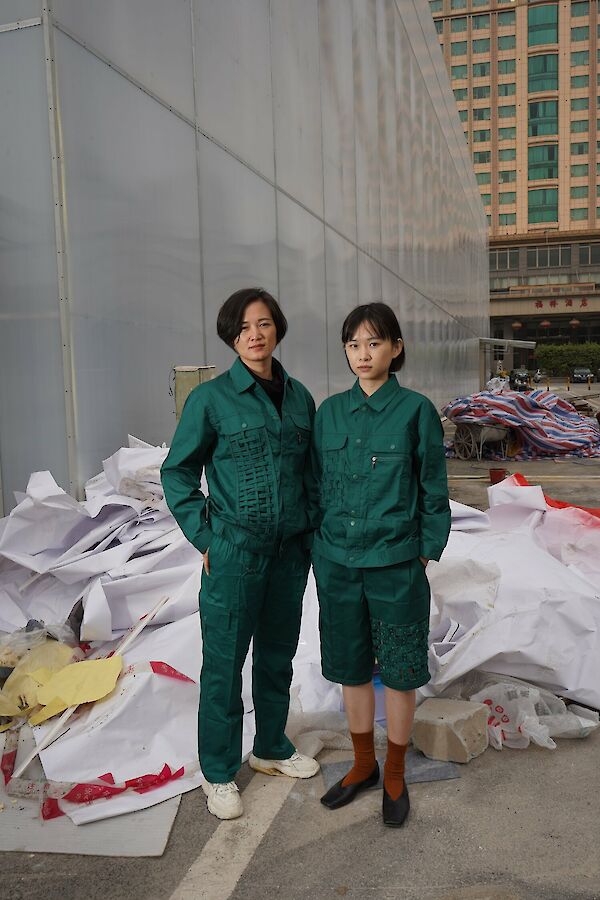
about a worker
“About A Worker” (AAW) is a movement initiated by Kim Hou and Paul Boulenger that gives a voice to factory workers in the textile industry. Since 2017, AAW collaborates with workers from all around the world and spreads the unheard stories of the fashion industry. In the fashion industry, workers are barely listened to or invited to take part in the discussion about the significant needs concerning the textile industry. Through their initiative, AAW places factory workers at the center of the discussion and gives them space to express their ideas and visions of and for the industry.
By collaborating with brands and institutions, AAW creates a place for dialogue where workers can share their knowledge, experiences, and expertise with different actors of the industry. Together, they reflect upon an alternative system: inclusive, fair, and sustainable. From this initiative, we draw the following principles:
- Trends are not seasonal, they must answer social needs.
- Hierarchies are useless if they don’t understand the needs of one another.
- Education institutes have the responsibility to deconstruct the myths of the fashion culture and confront future actors of the fashion industries to the realities of the ecosystems they will be operating in.
- Workers are Designers.
- In the same logic, not only should endemic knowledge be valued but also materials. Together, they allow for responsible, ethical, and local production means.
- One’s practice needs to be (self-)criticized and reflected upon in order to generate new knowledge and feed the practice in return.
Through this cycle, new inputs are generated that can be valuable for other practitioners and future generations. Such acts have the potential to change in depth the cultures, approaches, and processes of the fashion industries.
About Camille Guibaud and Maxime Benvenuto
Maxime Benvenuto is a design researcher based in Rotterdam. He develops projects involving journalistic, political, and societal issues, in combination with theoretical and critical reflections on design practices. He is co-founder of We Are, a foundation that uses design methodologies through cross-field collaborations for societal impact.
Camille Guibaud is a cultural producer. She was trained as assistant curator at the MAXXI in Rome, and co-organized the international platform VENICE DESIGN. She is collaborating with About A Worker on educational programs, and with Unbore, a non-profit foundation that fosters art, life-science, and technology with whom she develops diverse cultural projects.
Both Benvenuto and Guibaid are currently students of the Critical Inquiry Lab at the Design Academy Eindhoven.
